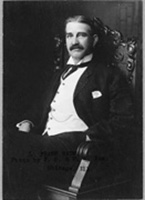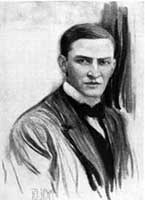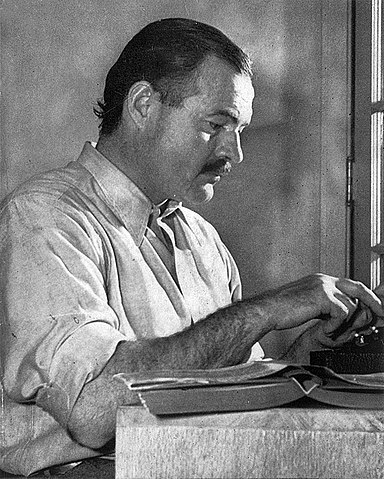
Milton Friedman
Born: 1912 in Brookyln, New York
Pen Name: None Connection to Illinois: Milton Friedman was a Nobel Prize winning economist who taught at the University of Chicago. Biography: Besides the Nobel Prize, Mr. Friedman was a senior research fellow at the Hoover Institution, Stanford University and the Paul Snowden Distinguished Service Professor Emeritus of Econmics at the Univesity of Chicago. His economic theories and the 'Chicago School' of economics had great impact in the last half of the twentieth century on the economic policies of many nations.
Awards:
- -- Nobel Prize -- Economics, ''''
Selected Titles
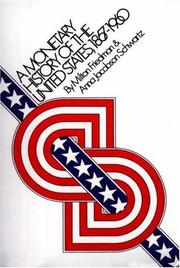 |
A monetary history of the United States, 1867-1960 / ISBN: 0691003548 OCLC: 258805 Princeton University Press, Princeton : 1963. Historical developments of the last century are explained in terms of monetary theory. |
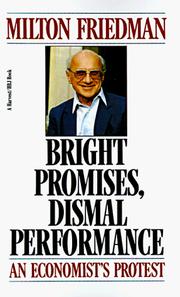 |
Bright promises, dismal performance : ISBN: 0156141612 OCLC: 9081725 Harcourt Brace Jovanovich, San Diego : ©1983. |
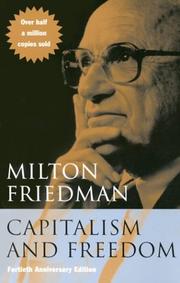 |
Capitalism and freedom / ISBN: 0226264211 OCLC: 49672469 "How can we benefit from the promise of government while avoiding the threat it poses to individual freedom? In this classic book, Milton Friedman provides the definitive statement of his immensely influential economic philosophy -- one in which competitive capitalism serves as both a device for achieving economic freedom and a necessary condition for political freedom. The result is an accessible text that has sold well over a million copies in English, has been translated into eighteen languages, and shows every sign of becoming more and more influential as time goes on."--Back cover. |
| Capitalism and freedom: problems and prospects; ISBN: 0813905559 OCLC: 866580 University Press of Virginia Charlottesville, [1975] |
|
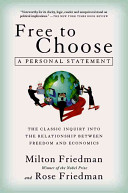 |
Free to choose : ISBN: 9781439514092 OCLC: 962757872 In this classic discussion about economics, freedom, and the relationship between the two, Milton and Rose Friedman explain how our freedom has been eroded and our prosperity undermined through the explosion of laws, regulations, agencies, and spending in Washington, and how good intentions often produce deplorable results when government is the middleman. The Friedmans also provide remedies for these ills--they tell us what to do in order to expand our freedom and promote prosperity. New Foreword by the authors. |
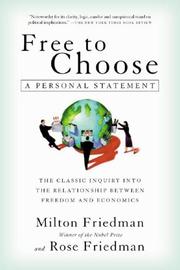 |
Free to choose : ISBN: 0156334607 OCLC: 21563571 In this classic discussion about economics, freedom, and the relationship between the two, Milton and Rose Friedman explain how our freedom has been eroded and our prosperity undermined through the explosion of laws, regulations, agencies, and spending in Washington, and how good intentions often produce deplorable results when government is the middleman. The Friedmans also provide remedies for these ills--they tell us what to do in order to expand our freedom and promote prosperity. New Foreword by the authors. |
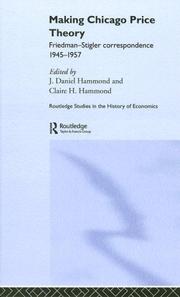 |
Making Chicago price theory : ISBN: 0415700787 OCLC: 57166746 Routledge, London ; 2006. Milton Friedman and George J. Stigler shaped economics as we know it today - their Chicago School laid the groundwork for much of the neoclassical tradition in economic analysis. This book brings together a collection of letters from these two Noble laureates from the post-war years, containing new information about their personal and professional relationships, and also illuminating the development of ideas which are now fundamental to economic theory. The book, edited by Dan and Claire Hammond, contains an introductory chapter, chronologies for Friedman and Stigler, and transcripts of 71 letters written from 1945 to 1957 along with enclosures.--Jacket. |
| Milton Friedman on Economics : ISBN: 1282901877 OCLC: 741350926 University of Chicago Press 2010. On his death in the autumn of 2006, Milton Friedman was lauded as the grandmaster of free-market economic theory in the postwar era by the New York Times and the most influential economist of the second half of the 20th century by the Economist. Winner of the Nobel Prize in Economics in 1976, Friedman was both a highly respected economist and a prominent public intellectual, the leader of a revolution in economic and political thought that argued robustly in favor of virtues of free markets and laissez-faire policies.Milton Friedman on Economics: Selected Papers collects a variety of Fried. |
|
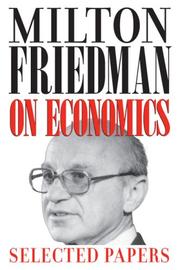 |
Milton Friedman on economics : ISBN: 0226263495 OCLC: 154689766 University of Chicago Press, Chicago : 2007. "Milton Friedman on Economics: Selected Papers collects a variety of Friedman's papers on topics in economics that were originally published in the Journal of Political Economy. Opening with Friedman's 1977 Nobel Lecture, the volume spans nearly the whole of his career, incorporating papers from as early as 1948 and as late as 1990." |
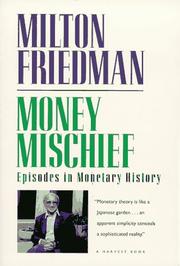 |
Money mischief : ISBN: 015661930X OCLC: 30761850 Harcourt Brace & Co., San Diego : 1994. Discusses the creation of value, explains the role of monetary theory, and the present monetary system of the United States. |
| Price theory / ISBN: 1607961512 OCLC: 779120377 Richest Man in Babylon Pub., [Place of publication not identified] : 2008. |
|
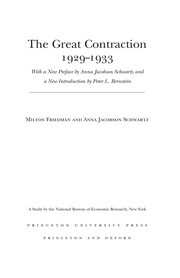 |
The great contraction, 1929-1933 / ISBN: 0691137943 OCLC: 844923080 Princeton University Press, Princeton : ©2008. |
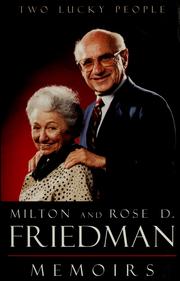 |
Two lucky people : ISBN: 0226264149 OCLC: 38120565 The University of Chicago Press, Chicago : 1998. Two Lucky People is Milton and Rose Friedman's memorable and lively account of their lives, the people they knew, and the work they shared. For the first time they set the record straight regarding their involvement with world leaders and many of this century's most important public policy issues. Included here are previously unpublished documents of significant interest, such as a letter Milton Friedman wrote to General Pinochet in 1975 on his return from Chile, along with Pinochet's reply; a memo from Friedman prepared in 1988 for Zhao Zi Yang, the general secretary for the Communist party in China, on economic reform in China; and the transcript of Friedman's subsequent lengthy meeting with Zhao. |
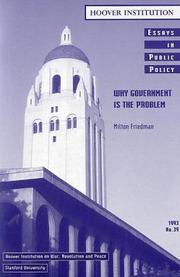 |
Why government is the problem / ISBN: 0817954422 OCLC: 840435668 Hoover Institution on War, Revolution, and Peace, Stanford University, [Stanford, Calif.] : 1993. Friedman discusses a government system that is no longer controlled by we, the people. Instead of Lincoln's government of the people, by the people, and for the people, we now have a government of the people, by the bureaucrats, for the bureaucrats, including the elected representatives who have become bureaucrats. |


